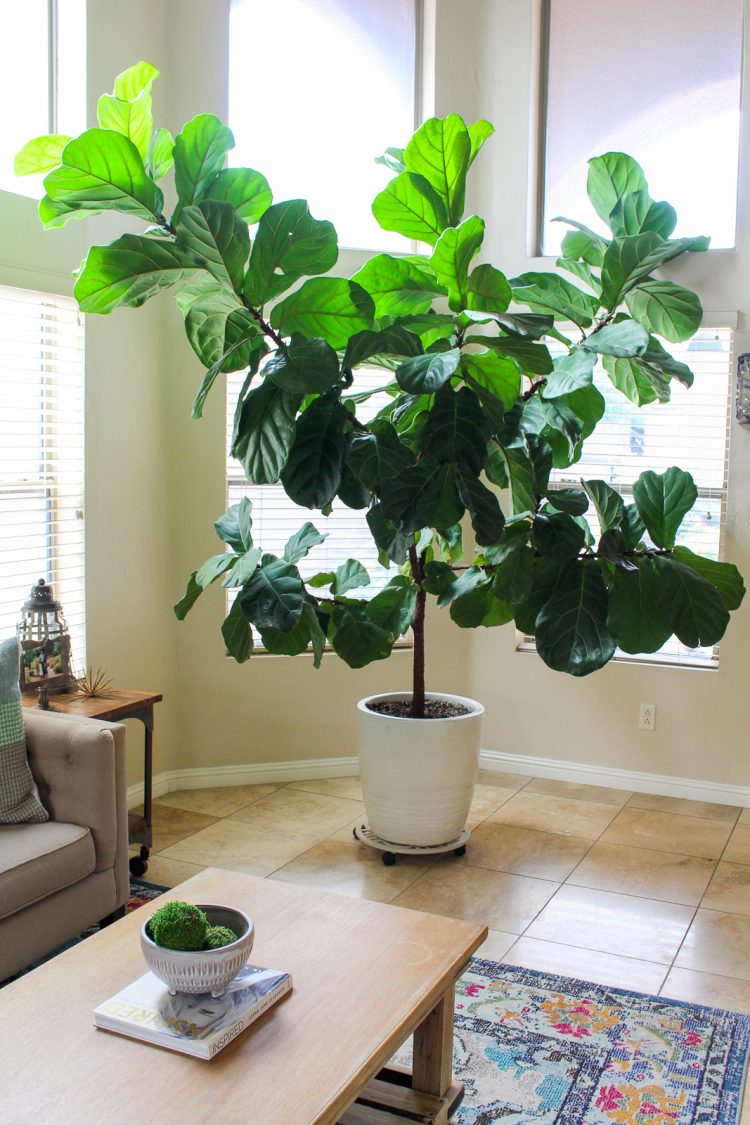Sharing tips on how to not kill your houseplant and keep indoor plants alive and thriving!
The Pilot says I used to have a gangrene thumb. I was the person who’d walk through the plant shop and plants would instantly recoil in fear that I would bring them home. The unlucky chosen ones were brought into our house, neglected, and lived a sad, yet quick, death.
With a huge learning curve, over past handful of years, I’ve really turned things around! We now have a full garden with lots of herbs and veggies, multiple thriving indoor houseplants, and the legendary Frida, our 10 ft-ish fiddle leaf fig.
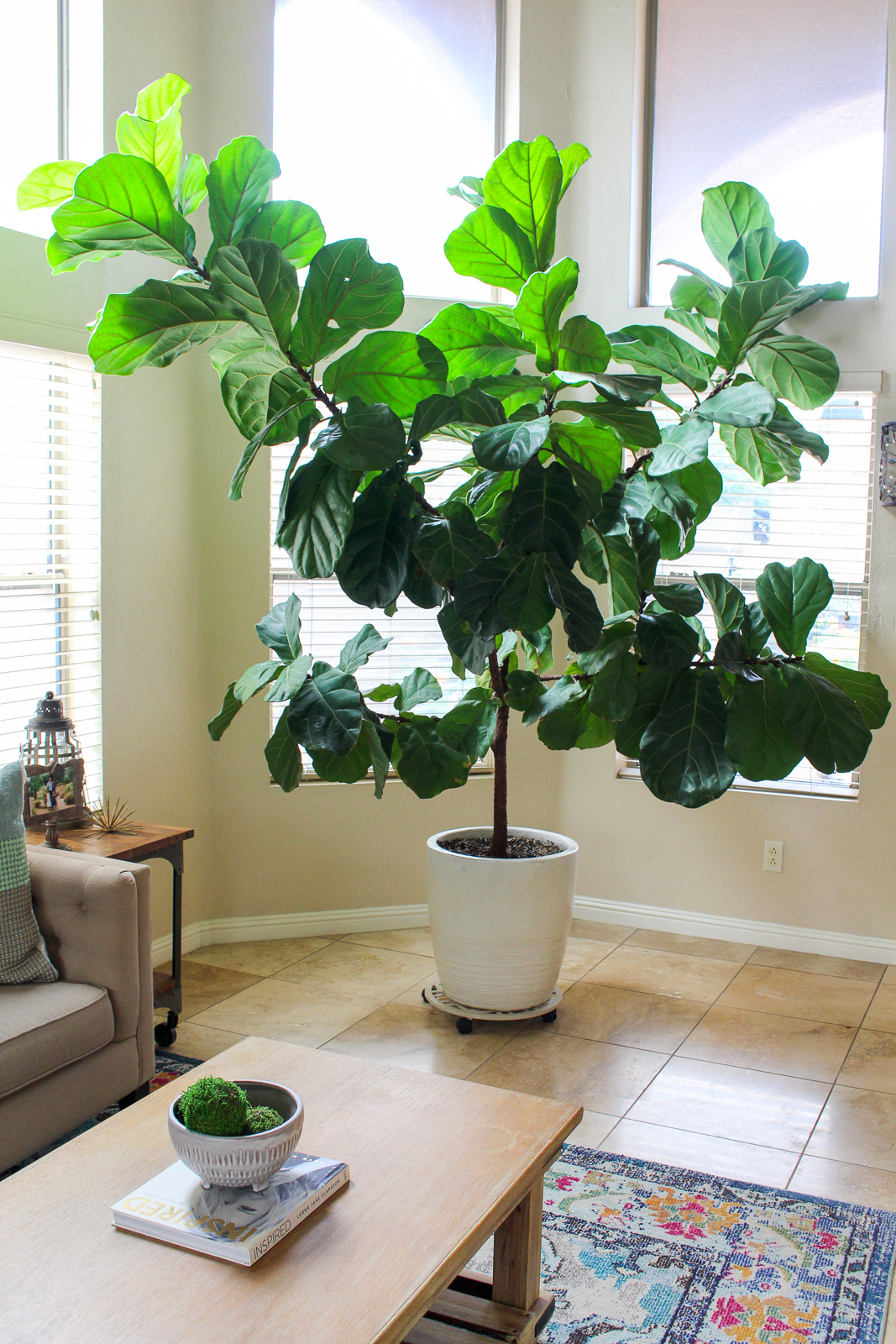
Houseplants can make such a difference in home decor and the overall vibe of the house! They can help purify air and can also add more style and character to your home. Plants naturally grow in the wild but you can recreate a plant’s natural habitat indoors. Today, I’m sharing some tips that can help my horticulturally challenged friends out there kiss their black thumb goodbye and keep your plants alive thriving inside your homes.
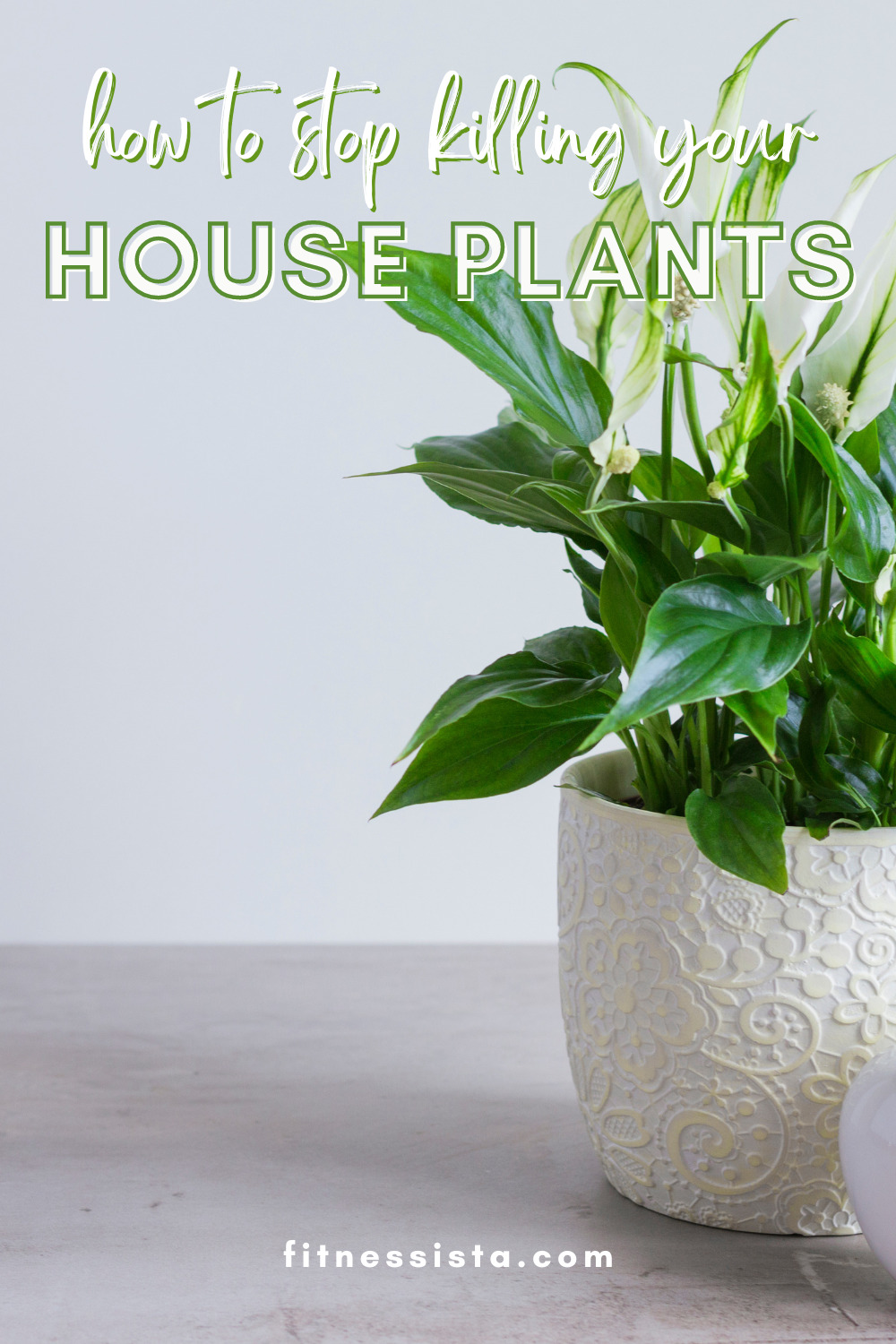
How Not to Kill Your Houseplant
Choosing plants wisely
Don’t be afraid to start with an “easier” plant, like a succulent, lavender, aloe, cacti, spider plant, or my fave easy plant, the Heart leaf Philodendron. This post has a list of popular houseplants. Check out the tag to see how much sunlight and water they need and plan accordingly for the type of care that’s required. Succulents and cacti need very little water (too much can give them wet feet and soggy roots), while aloe needs a bit more, and the Heart leaf Philodendron likes to dry out a little and then be completely drenched.
Put plants in the right spot
Sunlight is a critical factor, as some plants need a lot of sun and others don’t need much at all. Before making your purchase, check out the tag of the plant or do a quick google search to see how much light they prefer. Our fiddle leaf fig loves being in a large south-facing window, which receives hours of indirect sun. Other plants in the house do well with indirect sun from various windows. When you bring your plant home, place it into its spot in the same pot you brought home from the nursery. This way it can get used to its new environment before experiencing the stress of repotting.
Choose the right pot
Check the bottom the pot and make sure that it has a drainage hole. You want to make sure the soil can drain, otherwise you may experience root rot. If you really love the pot you want to use but it doesn’t have a drainage hole, you can place the plant in its plastic pot inside of the larger pot. This way, you can remove the plant to water and drain, then put it back into its decorative pot.
Keep plants nourished
Seek out a good fertilizer for your plant and use this twice a year. I like to do this in the spring and fall. I’ll typically lurk Amazon reviews or ask someone at the plant shop what they recommend. Many plants don’t end up needing fertilizer, but it can make a difference in the overall health and growth of the plant.
Avoid overwatering and underwatering
Probably my #1 tip for plants is to use a water meter. This is the best way to tell if your plants need water! Many people believe in giving their plants a bit of water every day, but the method that’s worked best for me is to wait for them to dry out a little (a 2-3 on the water meter) and then a drench the heck out of them. Here is the water meter that I use! Also, plants love showers if you want to water them in the shower!

Cleaning dusty leaves
When the leaves are dusty, it makes it more challenging to absorb sunlight and for photosynthesis to occur. Use a mister and a paper towel or soft cloth to gently clean the leaves. I’ve heard of people using neem oil (and even mayonnaise!) to clean their plant’s leaves, but I find that good ol’ filtered water works the best.
Use sharp scissors for cutting dead leaves / branches
Don’t be afraid to cut off dead leaves or branches. Also if your plant has any brown spots on the leaves, you can gently trim this using a pair of scissors. When I was first getting used to caring for our fiddle leaf fig, I had some brown spots that the plant was constantly using its energy to try and repair. My nana told me to cut off the brown spots at the edges of the leaves, and it made a huge difference.
Use artificial lights as needed
If you find that your plant isn’t getting enough sunlight or may need an extra boost, you can use a grow light at home. Amazon has so many of these!
Rotate plants regularly
This way your plant won’t have an obvious front and back, but instead will stay growing upright and will look nice on all sides. I like to rotate my larger plants every three months.
Groom your plants
Take a look at your plants and make sure to trim off any dead leaves, remove any mushrooms (a sign of healthy soil), and trim them as needed if they start to get out of hand. 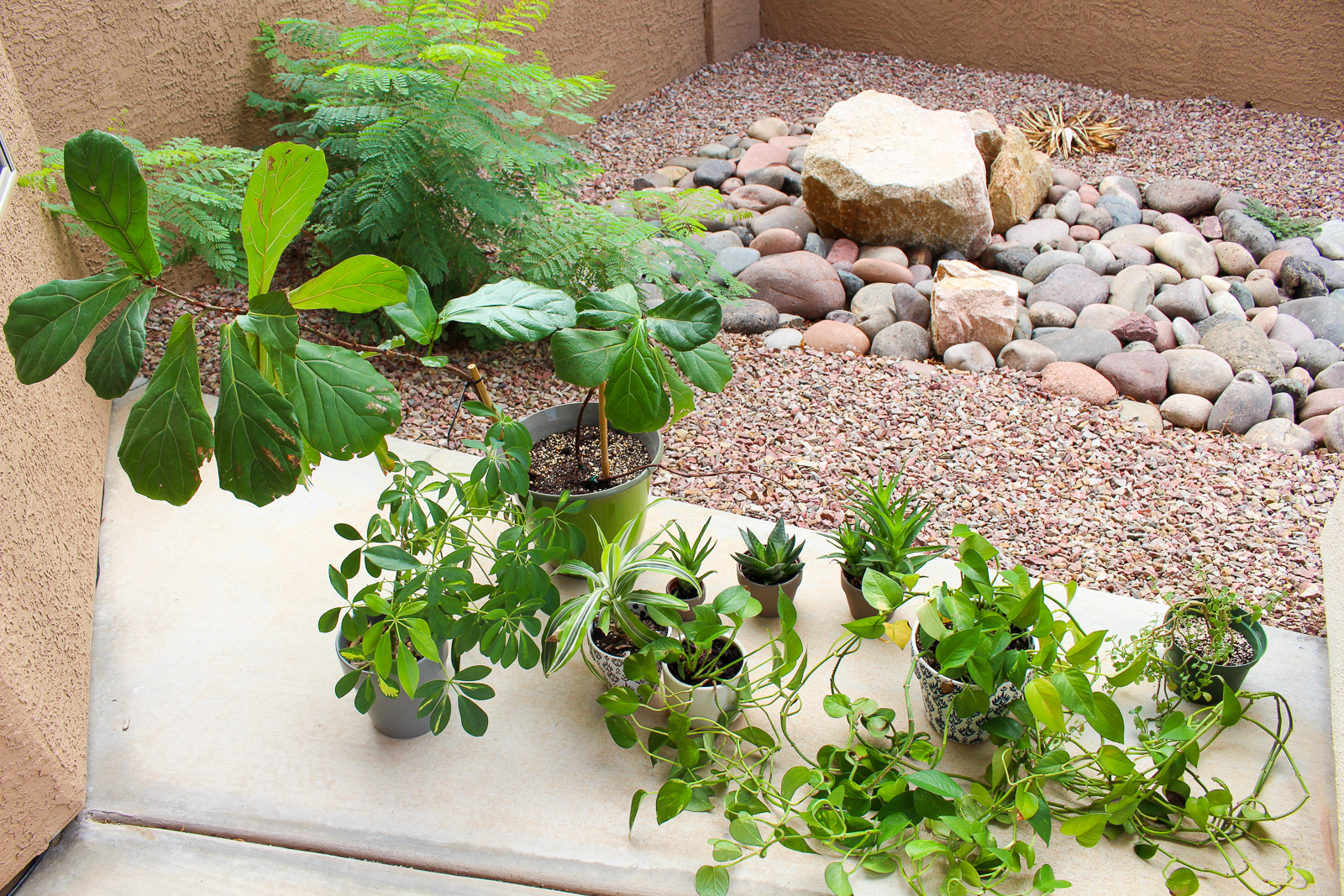
Address root rot as needed
If you notice that your plant is looking soggy, dropping leaves, yellowing or brown leaves despite regular watering, it may have root rot. This is a helpful post with signs that your plant may have root rot and what you can do about it. In may cases, you can absolutely rescue your plant from root rot.
Check for pests
Check your plants from pests (here are some common ones!) and address accordingly by removing the pests and cleaning the leaves.
Filter your water
This seems like it wouldn’t make a difference, but it has absolutely helped with the leaves of some of our plants. Even if you don’t filter for regular watering, try using filtered water to clean the leaves. Our water in Tucson is extremely hard, so when I switched to Berkey filtered water for the leaves, the plants started to look much healthier.
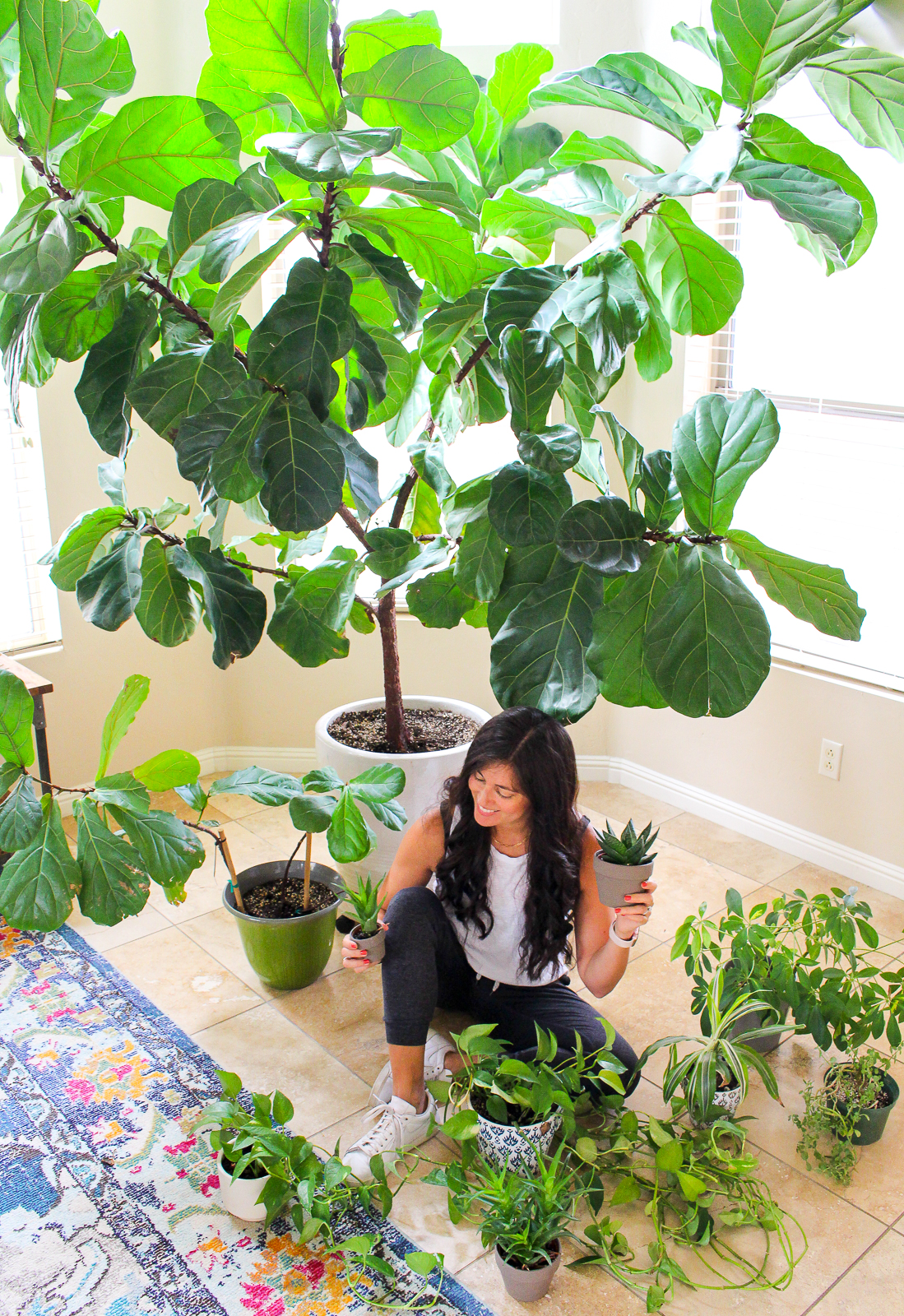
Give them attention… but not too much attention.
This is a huge one. At first I wanted to give my plants ALL the attention. I watered them daily, played Michael Bublé, and turns out that’s a great way to assassinate your houseplant. So, I water when they dry out, clean the leaves, and then otherwise, play it cool. 
What plant tips am I missing? Are you a green thumb or a plant killer?
Have a wonderful day and I’ll see ya tomorrow with a fashion post
xoxo
Gina
More:
How to take care of your fiddle leaf fig
Source by fitnessista.com
